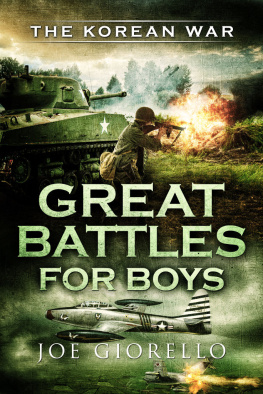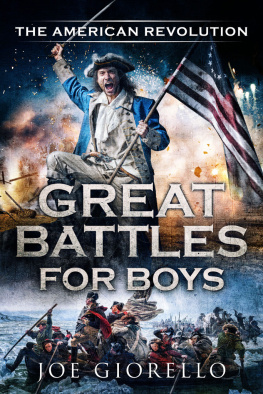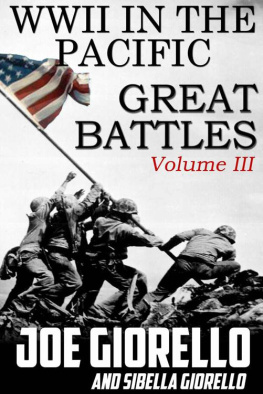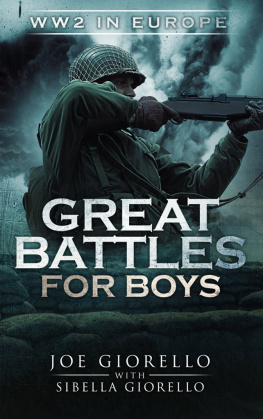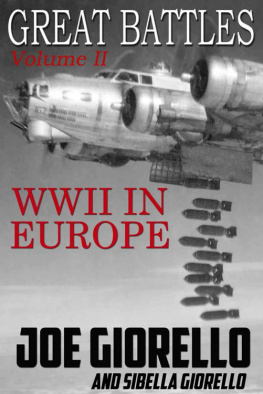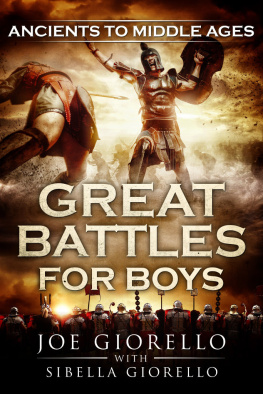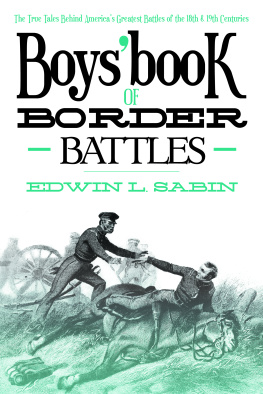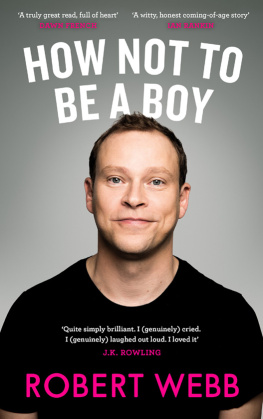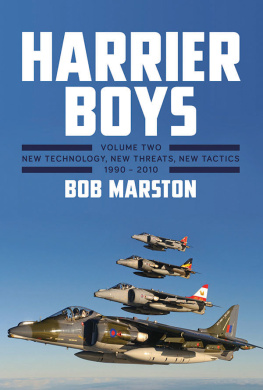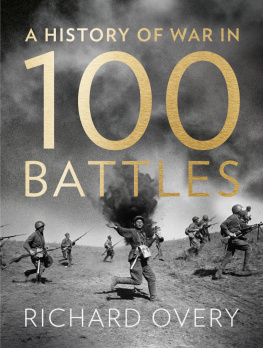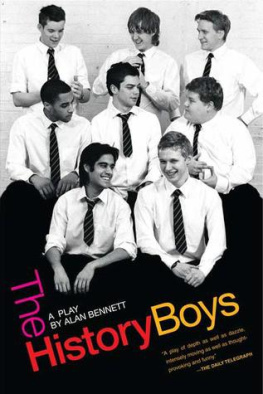While every precaution has been taken in the preparation of this book, the publisher assumes no responsibility for errors or omissions, or for damages resulting from the use of the information contained herein.
GREAT BATTLES FOR BOYS: THE KOREAN WAR
First edition. March 3, 2022.
Copyright 2022 Joe Giorello.
ISBN: 978-1947076228
Written by Joe Giorello.
10 9 8 7 6 5 4 3 2 1
Also by Joe Giorello
Great Battles for Boys
Great Battles for Boys: Bunker Hill to WWI
Great Battles for Boys: Ancients to Middle Ages
Great Battles for Boys: The Civil War
Great Battles for Boys: WWII Europe
Great Battles for Boys WWII Pacific
Great Battles for Boys: The Korean War
Great Battles for Boys: WWI
Great Battles for Boys The American Revolution
Watch for more at Joe Giorellos site.
The Korean War
Great Battles for Boys
Joe Giorello
with
Sibella Giorello
Great Battles: The Korean War
Copyright 2021 by Joe Giorello
Kindle Edition
All images are courtesy of the public domain unless otherwise noted.
All rights reserved. No part of this book may be used or reproduced in any manner without written permission from the author and publisher except in the case of brief quotations embodied in critical articles or reviews.
This book is dedicated to my son, Nico Giorello, United States Marine Corps.
KOREAN WAR OVERVIEW
Before we get into the blood and guts of the Korean War battles, you need to know some history about the country of Korea.
Lets start in 1905.
At that time, Japan and Russia were fighting each other. These two countries are located near Korea. The conflict between them was known as the Russo-Japanese War.
Why were Russia and Japan fighting?
Russia wanted to expand its territory, and Japan wanted to halt that expansion. The battles raged for about a year before Japan won the war. The victory was unexpected because the Japanese military was much smaller than Russias army, but the Japanese soldiers were better trained and had a more modernized navy.
As the winner of the war, Japan enjoyed the spoils of war. The spoils are riches and resources taken by the victory from the losing country during or after the war. In this case, Japan seized control of the Korean Peninsula.
Look at the map below. Locate the countries of Russia, Japan, and China. Now check out that long stretch of land beneath Russia and China that dangles into the sea. That land is the Korean Peninsula. Notice, too, theres a line dividing the Korean Peninsula into two separate countries, North Korea and South Korea. Well come back to that border line in a minute.

Fast-forward about forty-five years after the Russo-Japanese War, and Japan then found itself losing a warWorld War II. The wars six years of continuous fighting had decimated the Japanese military and the countrys economy. But despite those dire circumstances, Japan refused to surrender. The United States, which opposed Japan during WWII, sent many warnings. If Japan did not surrender immediately, it would suffer severe consequences.
Japan ignored the warnings.
In response, the US dropped two atomic bombs on Japan in August 1945. Those explosions wiped out two cities. Nothing was left but cinders and ashes.
Japan finally surrendered.
But soon after that surrender, Russia declared war on Japan. Of course, declaring war on an already-demolished country is like kicking a guy when hes down. But in war, countries dont always play fair.
Also, Russia had changed. For one, in 1917, Russia suffered a devastating revolution. Violent protestors killed the corrupt Russian kinga leader known as the czar (pronounced zar)and these revolutionaries created a new kind of government. Instead of being ruled by a king, the new country grew into the Union of Soviet Socialist Republicsor USSRruled by Communist leaders.

Josef Stalin
Communism is a political ideology. It says the government should own everythingliterally everything and divide it equally among the people. The concept is that everyone will then have the same amount, and common ownership will work for everyones good.
Heres one example. Lets say youre a farmer. Under Communism, the government owns your land. It also owns the crops you produce on that land, and any money you earn from the sale of those crops. You work as a farmer, but you dont own any part of the farm.
The same situation is true for every other farmer in your country.
The problem is, somebody needs to be in charge of this system. That role falls to the Communist dictatora ruler with absolute power. The dictator runs the Communist government, and he decides who gets what from your farm and from everyone elses farm. The dictator can also take as much as he wants, and no one can stop him. Under this system, the Communist dictator keeps gaining more and more power over people.
Theres an old saying: Power corrupts, and absolute power corrupts absolutely.
Soviet dictator Josef Stalin grew into a ruthless political leader. Absolute power corrupted Stalin absolutely.
In 1945, as WWII was ending, Stalin felt confident about declaring war on Japan. After WWII, the Soviets and the US (as victors in the war) took control of the Korean Peninsula from Japan. They divided Korea in half.
The Soviets would control North Korea.
The United States would control South Korea.
The line dividing these two countries would be the 38th parallel.
Check out the map below.

You might be wondering: Whats a parallel?
World maps have a grid of lines that run east-to-west (left-to-right) and north-to-south (top-to-bottom).
The lines running east-to-west are latitudes, also known as parallels. Each parallel marks the distance from the earths equatorthe middle of planet Earth. When we say the 38th parallel, it refers to a point on the globe that is 38 degrees north of the equator.
But the 38th parallel didnt solve the differing ideologies between these two countries.
Under Stalins rule, North Korea became a full Communist country. North Koreas leader-by-title was Kim Il-Sung, a cruel dictator. He was mostly Stalins puppet, doing whatever Stalin told him to do. Under Kim Il-Sung, the North Korean people lost many freedoms, including the right to vote. They soon fell into poverty and starvation.
Meanwhile, South Korea was headed by a democratically elected president, Syng Man Rhee. Backed by the United States, Rhee was elected by the South Korean peoplewho could also vote him out of office. South Koreas living conditions and freedoms were superior to those of their Communist neighbors to the north.
But a new referee had walked onto the field of battlethe United Nations. Known as the UN, the United Nations was organized after WWII to keep peace among nations and to help avoid wars, especially world wars.
The UN insisted that the North Korean people should have the right to vote. The people could decide for themselves if they wanted to live under a Communist government or if they wanted to be a democracy like South Korea.
But Josef Stalin and Kim Il-Sung refused to allow any general elections in North Korea.
United States President Harry S. Truman grew concerned. Truman worried that Communism would spread to other countries, oppressing more people. The world had just wasted too much blood and treasure defeating a group of WWII dictators such as Adolf Hitler in Germany and Benito Mussolini in Italy.

